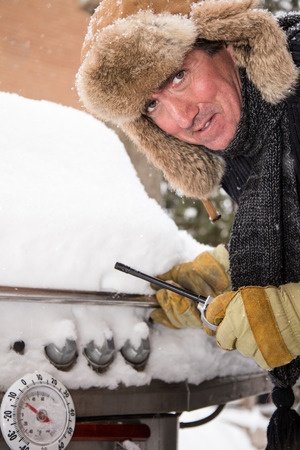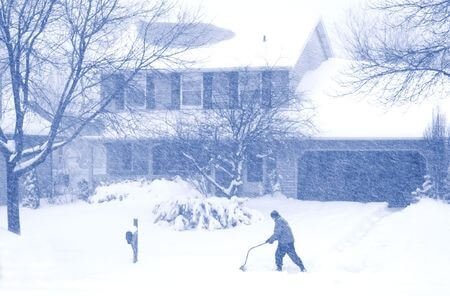 Whether this winter is mild or as snowy and cold as our past two winters, we’re bound to get walloped by a few snow storms. Ontarians are no strangers to cold, blustery winters. While these conditions are routine, they aren’t innocuous. Winter storms have the potential to be deadly. Last time we discussed how to prepare your vehicle and garage for the winter. Now let’s review the supplies every garage should have stocked in case of a severe weather event.
Whether this winter is mild or as snowy and cold as our past two winters, we’re bound to get walloped by a few snow storms. Ontarians are no strangers to cold, blustery winters. While these conditions are routine, they aren’t innocuous. Winter storms have the potential to be deadly. Last time we discussed how to prepare your vehicle and garage for the winter. Now let’s review the supplies every garage should have stocked in case of a severe weather event.
Stocking your garage with emergency supplies may seem overly cautious. However, Canadians fall victim to weather events, directly or indirectly, every year. Advanced preparation will increase your odds of staying safe during treacherous winter weather events.
Power and communication lines are susceptible to outage during ice storms or heavy snowfall. In most instances, power is restored within a few hours. In more serious cases, you may be forced to go without power or communication for days. If the temperature dips dangerously low, how will you stay warm for several days? Would you have enough food and clean water on hand until services are restored? By taking action now, you’ll be ready to weather the storm.
Three things to do right now that may save your life later
The key to surviving severe weather events is preparation. So be ready to act when dangerous weather is headed your way.
- Sign up to have weather alerts sent to your mobile phone. Be among the first to learn of impending bad weather so you can take action quickly.
- Create an emergency preparedness action plan. When an emergency strikes, it’s natural to panic. Develop an emergency action plan while you are calm and clearheaded. Review the plan with your entire family. Everyone should know what to do if a weather-related disaster strikes.
- Build an emergency survival kit. Gather the items you’ll need if a disaster strikes. Store them in your garage or somewhere accessible to everyone in your home.
Items to include in your emergency kit
What should you include in your emergency kit? Here are several items that merit a spot:
- Enough non-perishable food to last your family three days
- A manual can opener
- At least 12 litres of water per family member
- First aid kit
- Flashlights and extra batteries
- Candles and matches
- Battery-powered or crank radio
- Hand sanitizer
- Moist towelettes
- Whistle to attract help
- Ziploc plastic bags
- Garbage bags
The items above can be packed in a backpack, duffle bag or portable container, in case you need to evacuate your home. The emergency kit can be stored on a garage shelf or platform or in a garage cabinet. When organizing or renovating your garage, include a space to store disaster supplies.
These following items won’t fit in your kit, but should also be stashed away safely in your garage in case of emergency:
- Seasoned wood (where applicable), ethanol gel or heating fuel
- Shovel or snow removal equipment
- Rock salt (or an environmentally-friendly option) and sand
- Pliers or a wrench to turn off utilities
Be sure to also grab these items if a weather event hits:
- Warm clothing and blankets
- Medications for people and pets
- Contacts/eye glasses / hearing aids
- Personal hygiene items
- Baby supplies
- Pet supplies
- Important documents (passport, insurance policies, birth certificates, etc.)
- Cell phones and chargers
- Cash
- Contact list
Hopefully, you’ll never need to use your emergency supplies. To ensure all of the items are good when an emergency does occur, check the kit periodically. Rotate food, water and batteries, as needed, so they are fresh and ready to go when you need them.
Always heed warnings broadcast on television and radio by the Alert Ready Emergency Alert System. Such warnings are issued by emergency management officials and Environment Canada to help you take immediate action to protect your family when severe weather strikes.
In the event that ice or snow knocks out heating, it may be tempting to burn fuel inside of your home or garage. Don’t! It’s extremely dangerous and can lead to carbon monoxide poisoning and death. It’s fine to store your grill or propane tank in the garage, but move them outdoors when you’re ready to cook.
Regardless of what this winter has in store, be prepared if you encounter severe weather. Sign up for text message weather alerts. Create an emergency preparedness plan and review it with every member of the family. Prepare an emergency survival kit and store it in your garage or someplace accessible to everyone. For more resources on building your survival kit, see the Ontario Ministry of Safety and Correctional Services.
